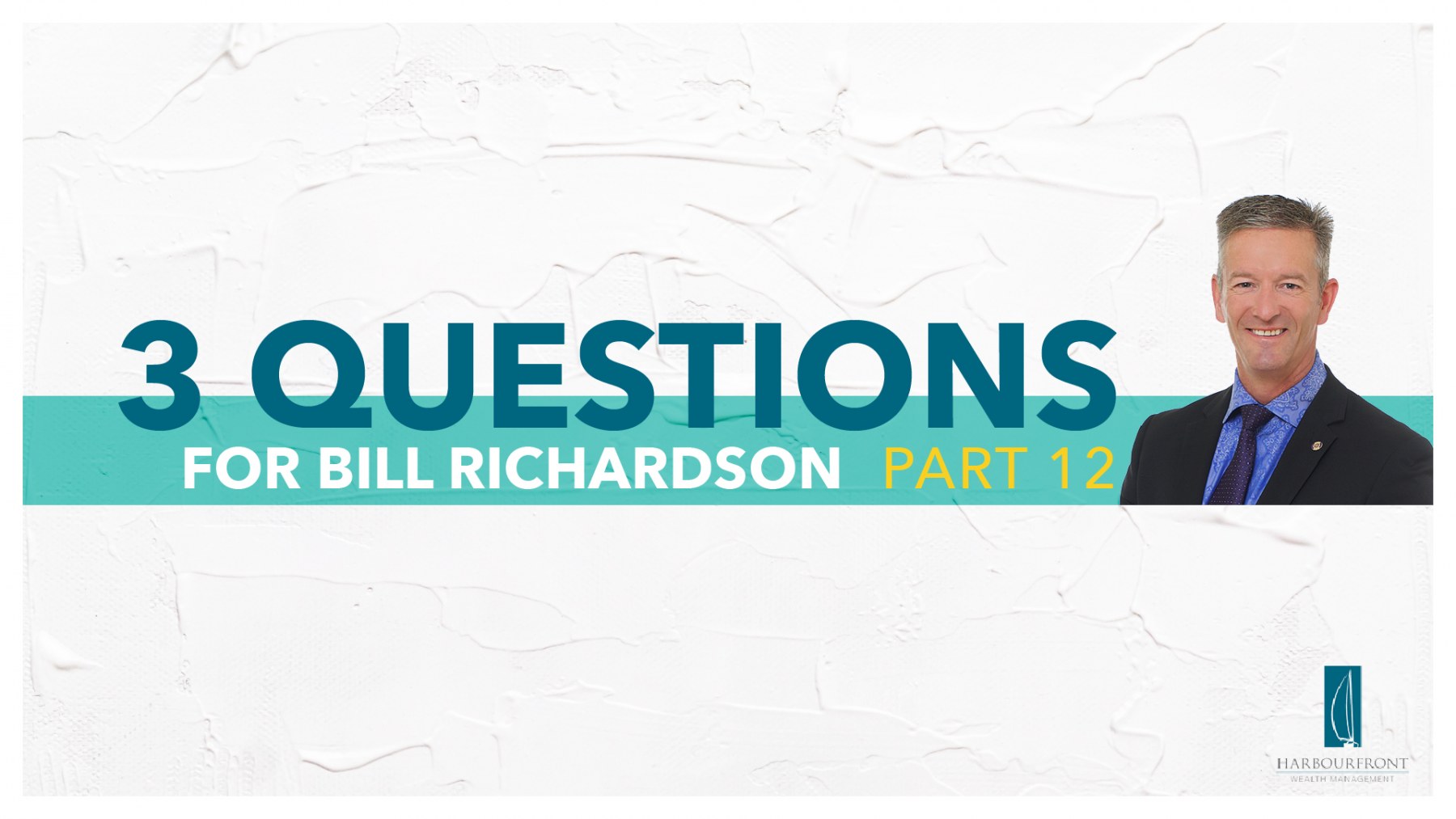Three Questions for Bill Richardson Part 12
Question 1: I hear people say that the main reason that stocks go up and down is emotion. Is that correct?
Unfortunately, most people don’t really understand how stocks work and if you asked the question “How do stocks work?”, you will generally get a response that stock prices are driven by emotion or that there are more buyers and sellers. Which is absolutely correct and absolutely wrong at the same time.
Let’s start with absolutely right. If you are a short-term trader, stock prices are driven by emotion. Companies only release important information, like earnings, every three months so when in a vacuum, why does a stock suddenly plummet or rise 10% in a few days between earnings releases? The answer could be summed up with one word – SPECULATION. People are speculating that the next earnings release will be good or bad or that the economy is going to strengthen or weaken or that there will a change of management or that the company may become a takeover candidate. Whey you listen to the business news, their focus is completely on this sort of thing because it helps them sell advertising.
For longer-term investors, day-to-day choppiness isn’t really a factor that they should focus on. Do you really think that Warren Buffet gets his knickers in a knot because Apple, which makes up 6% of his portfolio goes up or down by 5% in a day? (Source: CNBC.com).
Over time, the key driver of stock price movements is earnings per share growth. Since early 2015, Adobe’s earnings have grown from 62 cents per share to $7.92 cents per share and the stock has risen from $77 to $474. During that period, the PE Ratio (a measure of emotion) has declined from 160 to 60 times earnings. During this period, Adobe’s price has had three drops of greater than 20% (Source: Ycharts.com). Traders would have been stopped out on these drops and would have missed this tremendous return. Investors would have used these dips as buying opportunities.
So, if you are a longer-term investor, focus on earnings trends. Find companies with long-term consistent and predictable earnings growth trends that are expected to continue into the future, where the stock is available at a reasonable price and diversify. Don’t get fooled by short-term swings or what people are telling you on TV.
Question 2: What do you think about investing in Canadian bank stocks?
Canada’s major banks are some of the most secure and fundamentally strong companies in Canada and many investors use them as core investments in their portfolios and they have performed well over time.
In the previous question, we discussed how long-term investors should focus on companies with a long-term track record of earnings growth and the banks pass that test. If you look at charts of their earnings growth, you can’t find a more consistent and predictable trend. Earnings dipped during the 2008 Great Recession and that seems to be repeating in the current COVID crisis. Since 1995, 12-month rolling earnings for Royal Bank have grown from $1 to $9 per share but have dropped to $7.78 this year. As earnings have risen, so has their dividend. They have consistently paid out 45% of their earnings to shareholders in the form of dividends so their dividend has risen from 7 cents to $1.08 per share. $10,000 invested in 1995 is now worth $355,000 if you re-invested your dividends and it currently pays a dividend of 4.61% (source: Ycharts.com).
Bank earnings are dipping currently, and this is a short-term red flag as COVID-19 is decimating small business across Canada. Many small business loans will go bad and the banks will be required to provision for loans even before the go bad. When Royal Bank shares drop, they usually drop around 20% but dropped more in major declines, like 2000 and 2008. We should consider, however, that these declines took place during strong earnings growth. The COVID drop was just over 22% and the current PE Ratio is 11 which is at the low end of their historical range. So, returns will probably be below average until COVID gets sorted out and it may be a good time to diversify if it is too large a portion of your portfolio but before you do something, check your capital gains situation as it may be hard to replace your income, if that is important to you, if you pay a big chunk of your investment to the tax man.
Question 3: My wife and I are in good physical condition, but we are getting older. We often discuss wills and estate planning, especially now because of COVID-19. We were thinking about having a family summit when things clear up, find a nice place for the weekend, invite the family and discuss our will and estate. Do you like that idea?
What a great idea! We call this “Thinking Outside the Box”. Sorry for the bad pun. Most people procrastinate when it comes to having a will drafted or planning their estate, much less discussing their plan with their kids. The goal of estate planning is family harmony. If you have this meeting, you may have some friction but it is much better to settle things now rather than having a major family dispute after you die and have your family lose a big portion of your estate to lawyers.
If you want to do something like this, let me know and I will help you to draft an agenda and discussion plan.
Until next time, have a great day!
Bill

